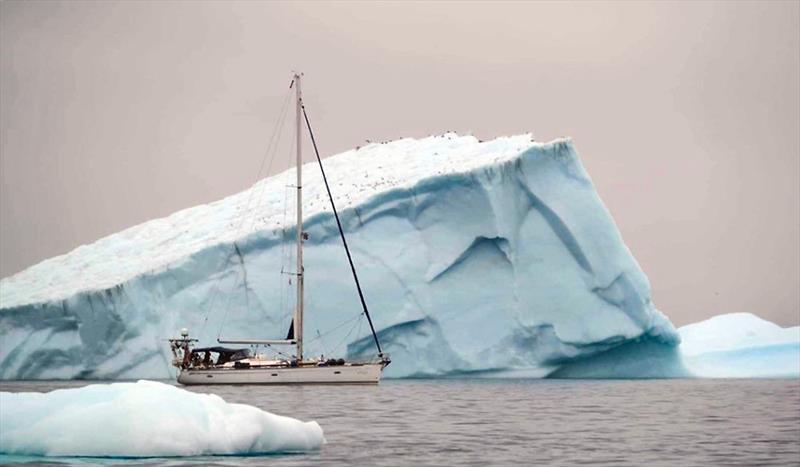
The Polar Yacht Guide 2020
by Daria Blackwell 14 Nov 2020 07:58 UTC

S/Y Vilja amongst Greenland's icebergs © Jon Petter Slungaard Myklebust
World Sailing and Royal Cruising Club Pilotage Foundation have compiled and published The Polar Yacht Guide with extensive input from Ocean Cruising Club members. Press release issued 28 October.
The Polar Yacht Guide and why it is needed.
Background Information
There are lots of reasons why sailors cruise to the polar regions. These include:
- A perception (sometimes misguided) that global warming is making higher latitudes more accessible
- Cruising in the lower latitudes has become overcrowded and commercialised
- It is the ultimate 'eco-tourism' destination
- Cruising sailors, more than others, love 'pushing the boundaries' and exploring
This has resulted in a big increase in the number of yachts cruising in Greenland, Svalbard, Alaska, the Northwest Passage, South America, the southern oceans and the Antarctic. The accompanying graph shows the number of transits of all vessels and of yachts voyaging through the Northwest Passage since it was first transited by Amundsen in 1906.
A similar story applies to yachts cruising or racing in the southern oceans and to yachts planning to visit the Antarctic peninsula.
Safety and the Environment
Most of these expeditions have been successfully completed by well-prepared yachts with competent crews. However, there have been a number of exceptions which have resulted in rescue operations and questions about potential damage to the environment. This is a cause of concern to maritime authorities, environmentalists, governments and local people.
The International Maritime Organization (IMO) is the global standard-setting authority for the safety, security and environmental performance of international shipping. Its main role is to create a regulatory framework for the shipping industry. Inevitably, and with good reason, a number of regulations originated at IMO (eg COLREGS) also affect recreational craft. These craft are typically subject to simplified codes administered by flag states and many seagoing sailing craft follow World Sailing special (safety) regulations. Much of the successful and safe management of small craft depends on the well-established concept of "Educate not Legislate" adopted by leading sailing organizations.
Recently some IMO delegations proposed that parts of the IMO Polar Code should be extended to cover "all ships on all voyages" (as in the application of COLREGS). This is a concern for private yacht sailors because:
- it is seen as the creeping extension of mandatory regulation, and
- the IMO regulatory system is designed for big ships not yachts.
Vessels of all types face a tough and demanding environment in polar regions but their approach to overcoming these challenges differs.
The different polar regions share some common problems: navigating in ice, poorly surveyed waters, limited SAR resources, fragile and precious environments and isolation. However, they differ in other respects. The Antarctic is governed by the Antarctic Treaty system and has well-established protocols for visiting yachts but the northern polar regions are administered by various sovereign countries with different rules. The southern oceans frequently experience extreme weather in very exposed waters whilst the north generally has more ports of refuge.
At the time of writing, the world is in the midst of the Coronavirus pandemic and cruising sailors are being asked to not visit polar regions. In particular, yachts are not welcome in vulnerable communities which may have limited health care facilities.
Polar Yacht Guide
A group of experienced high latitude sailors, mindful of the concerns mentioned above, have written a voluntary code of practice called the Polar Yacht Guide (PYG). The PYG, which is specifically designed for yachts, is in three parts: (a) Safety of navigation and voyage planning for all polar waters, (b) Arctic waters and (c) Antarctic waters. The PYG is intended to supplement existing guides and pilot books. The authors and contributors believe it will be more effective than mandatory legislation.
The draft document was circulated for consultation to a wide group of organisations and individuals including search and rescue organisations, experienced high latitude sailors, environmental organisations, yacht clubs, navigation institutions, IMO representatives and Government agencies. It is now available on the World Sailing website and the Royal Cruising Club Pilotage Foundation website.
View the list of contributing authors here.
This article has been provided by the courtesy of Ocean Cruising Club.